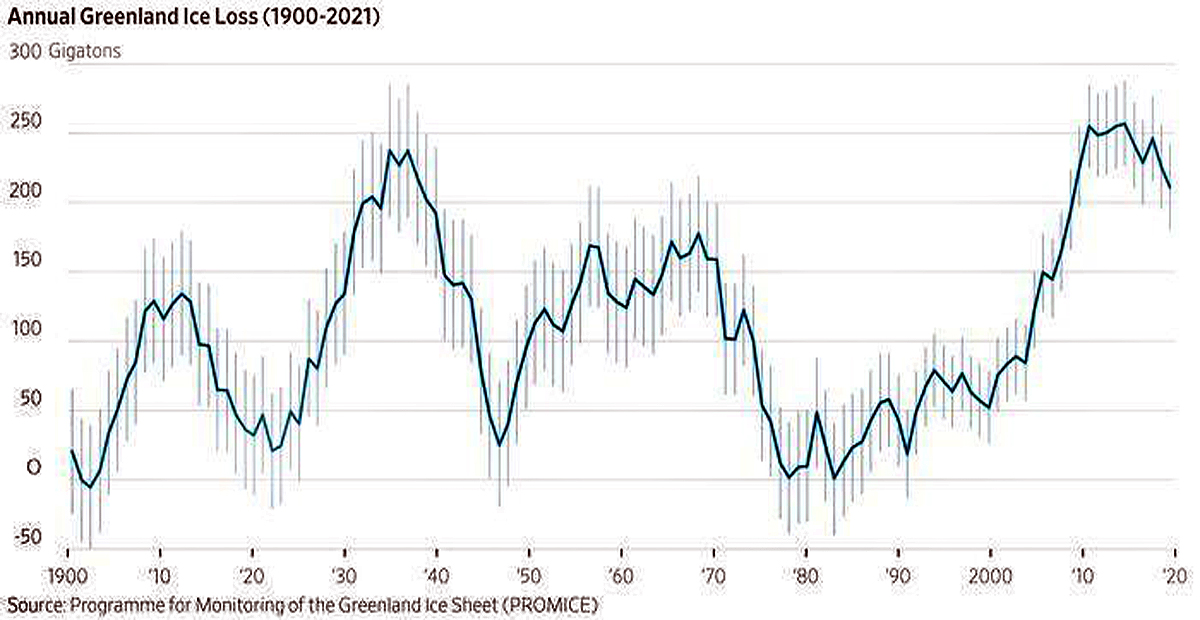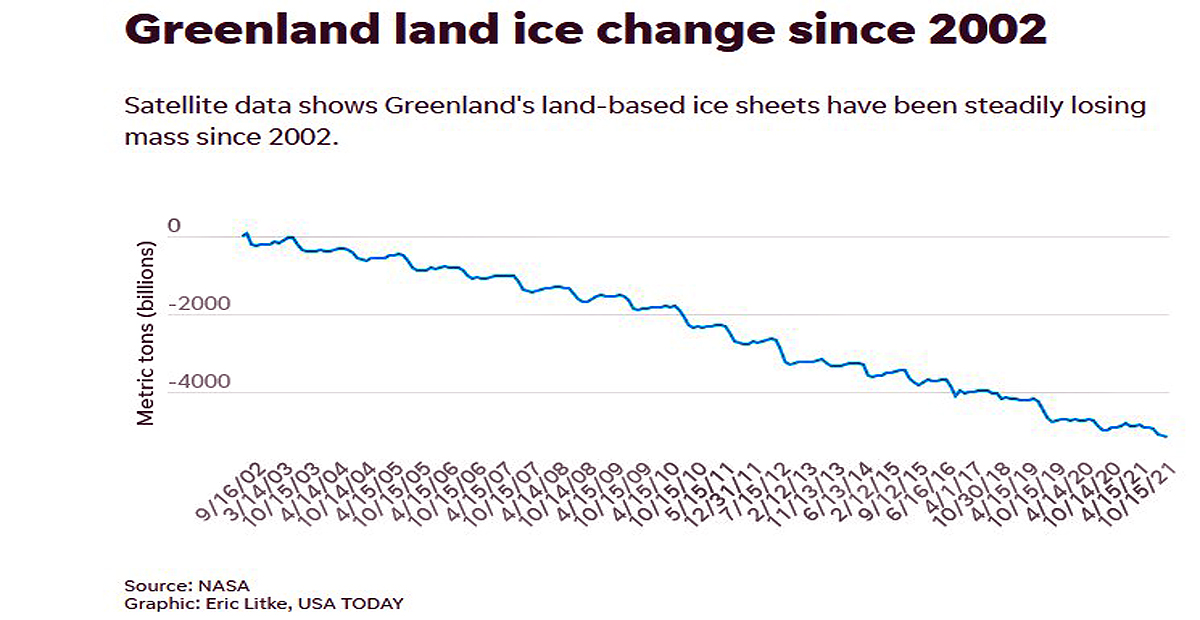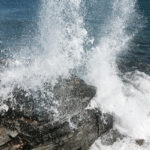Despite What WSJ Opinion Writer Says, Ice Loss is a Problem
by Liz Sikes
Steven Koonin’s op-ed in The Wall Street Journal last month erroneously argues that because the rate of loss on the Greenland ice sheet has slowed down, there is little to worry about. This is an invalid interpretation of the data. In fact, there are many reasons to remain concerned about sea level rise due to the shrinking Greenland ice sheet. Records that show that the rate of this loss appears to have slowed in the last four to five years do not negate these concerns.
Mr. Koonin is correct in noting that the rate of loss has slowed recently and seems to fluctuate. However, as the first graph below and provided in his op-ed shows, there is presently a rapid amount of ice loss and this rate of loss is still the highest it has been in the last 100 years. Dr. K.D. Mankoff, one of the researchers who produced the data that Mr. Koonin presents, also pointed this out in a published letter to the Journal’s editor.
While the original graph presents the rate of ice loss, it is not showing how much ice there is. The second graph below shows ice volume. As you can see by comparing the graphs, ice loss has happened every year, resulting in an ever-shrinking ice cap. It is just how fast it is melting that has changed.
Any ice that melts from land-based glaciers in Greenland or anywhere contributes to sea level rise. Given that the National Oceanic and Atmospheric Administration recently projected 10-12 inches of sea level rise along U.S. coastlines over the next 30 years, every bit of melting is worrisome. About 40% of all U.S. residents live near coastal waters and their lives, homes, and livelihoods, and the considerable amount of our country’s critical infrastructure that hugs the coasts, are at risk.
Ice loss, whether faster, or just a little less fast, is, and must be, an ongoing concern for all coastal regions, especially low-lying areas on the East Coast of the U.S., where we already see regular flooding. To suggest otherwise is incorrect and irresponsible.
Liz Sikes is a professor of oceanography at Rutgers University, a paleoceanographer, and a C-Change Conversations Science Advisor. Liz was the awarded recipient of the American Geophysical Union’s Cesare Emiliani Lecture for 2020 in recognition of her outstanding contributions to her field. You can ask Liz and our other expert advisors questions about climate change by clicking here.




